Family dinners can sometimes get tense for a variety of reasons: differing opinions, clashing personalities, or even old grudges resurfacing. But when one adult crosses the line and makes deeply insensitive comments, it might be time to draw firm boundaries.
Like in this case, where a man decided to cut off his sister and her husband after a disturbing dinner conversation. His pregnant wife, a survivor of childhood trauma, was left in tears when her brother-in-law implied that their twin sons might “inherit” her father’s past crimes. The shocking accusation shattered the evening and created a painful family rift just before Thanksgiving, leaving everyone shaken and divided.
Sometimes, family members say or do things that leave you completely unsettled

Image credits: Wavebreak Media (not the actual image)
A man shared how his brother-in-law made shocking remarks about his young sons, leaving his pregnant wife deeply distressed
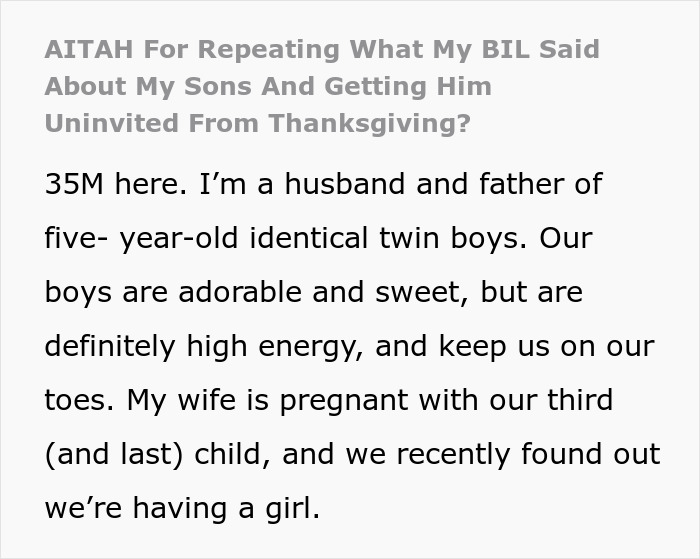
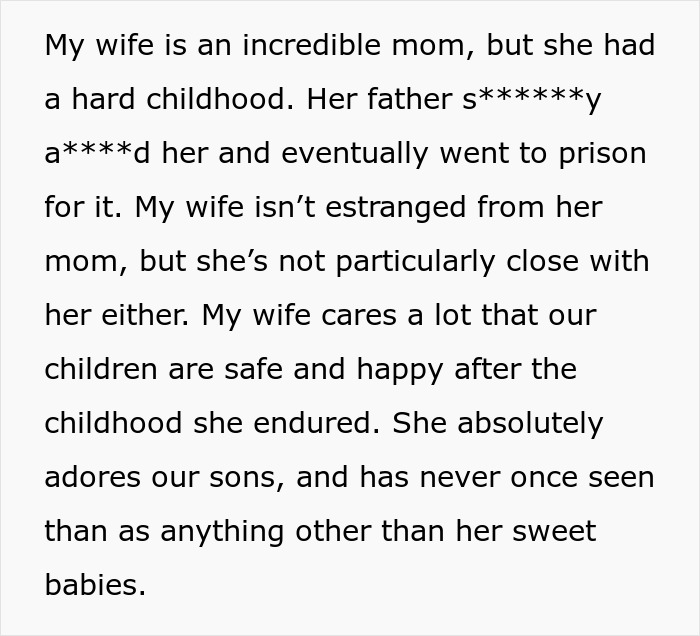
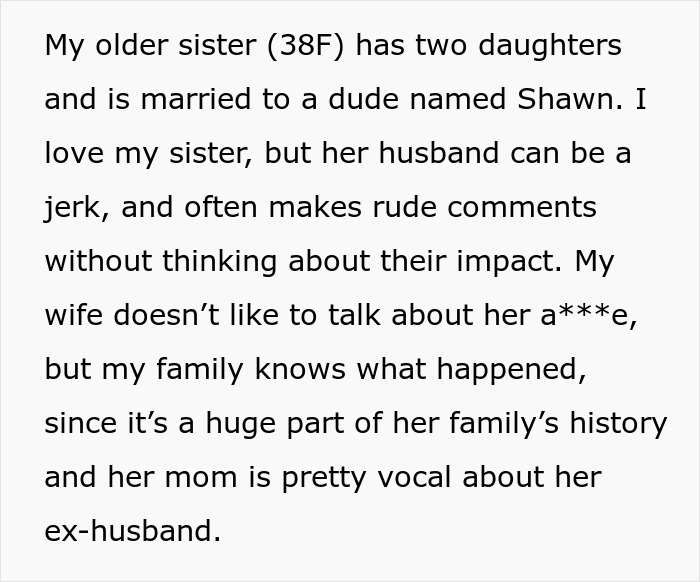
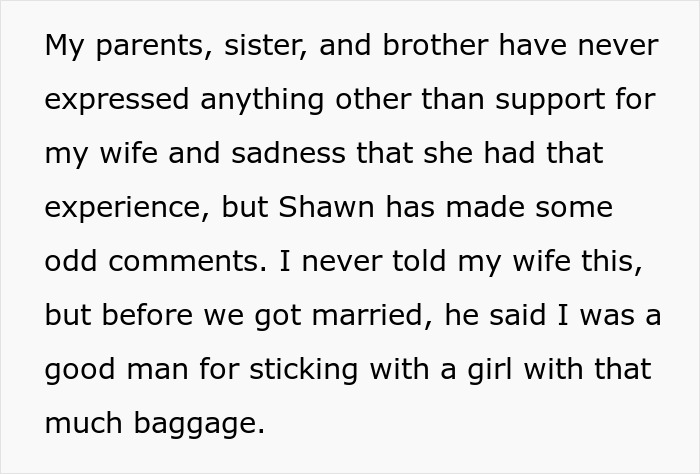

Image credits: The Yuri Arcurs Collection (not the actual image)
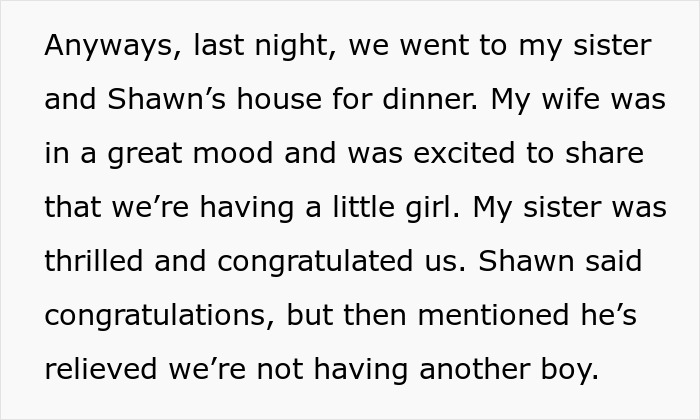
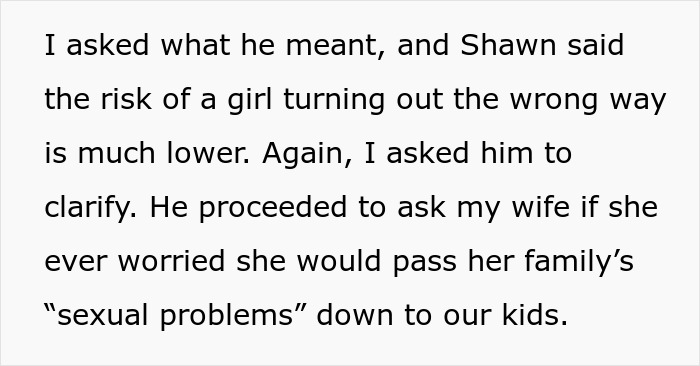
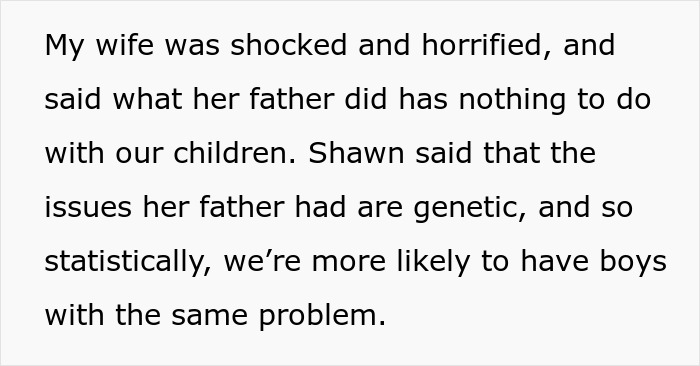
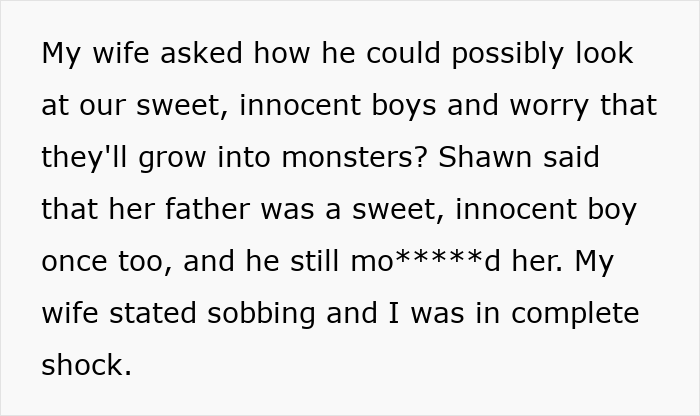
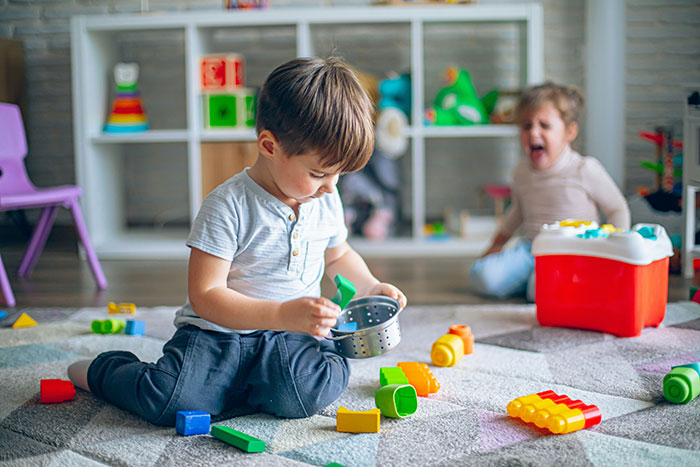
Image credits: Getty Images (not the actual image)
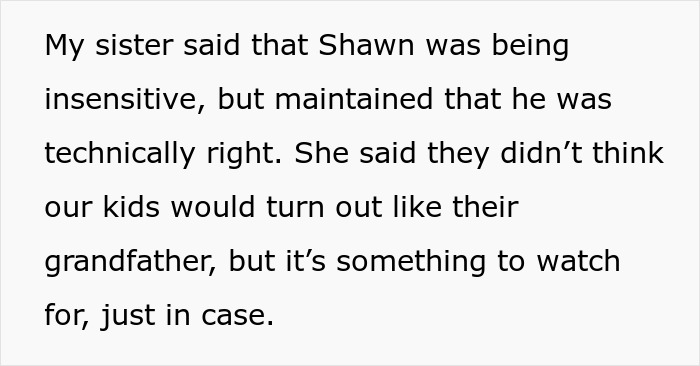
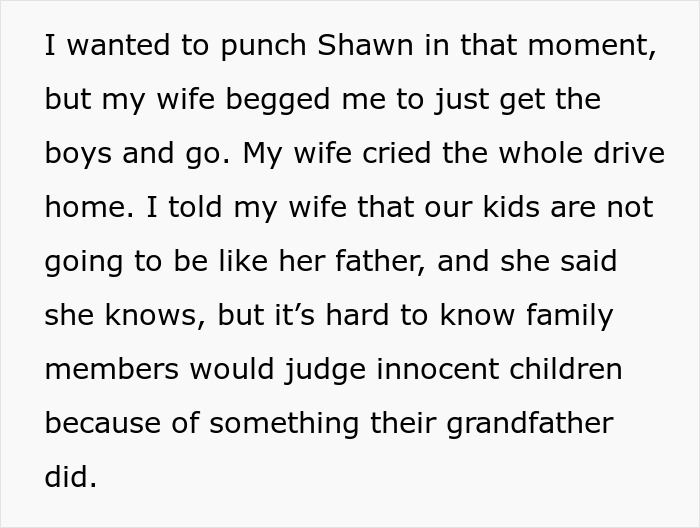
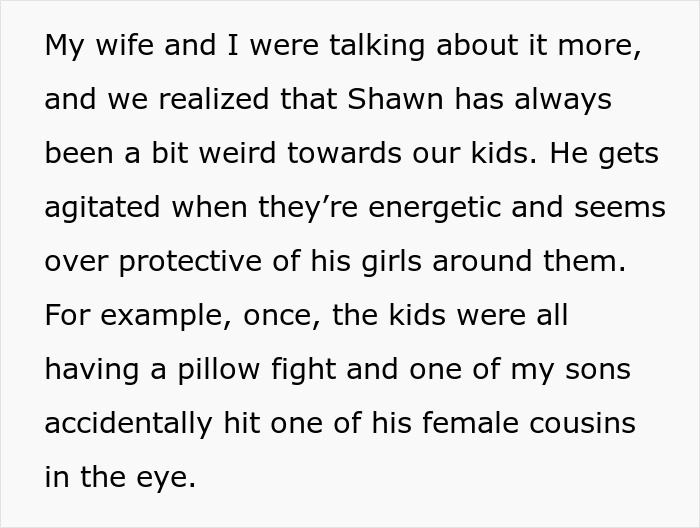
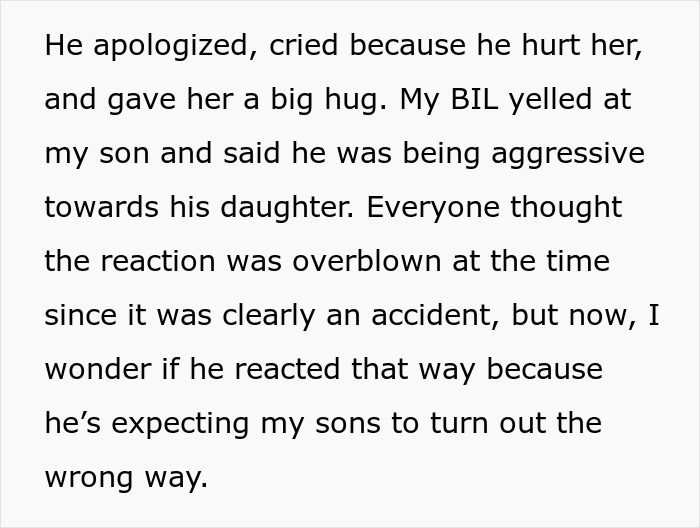
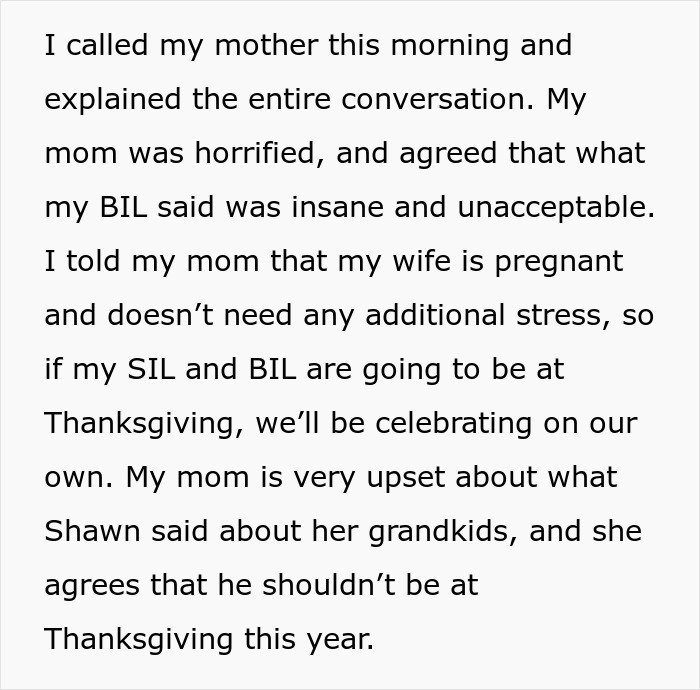

Image credits: Karolina Grabowska (not the actual image)
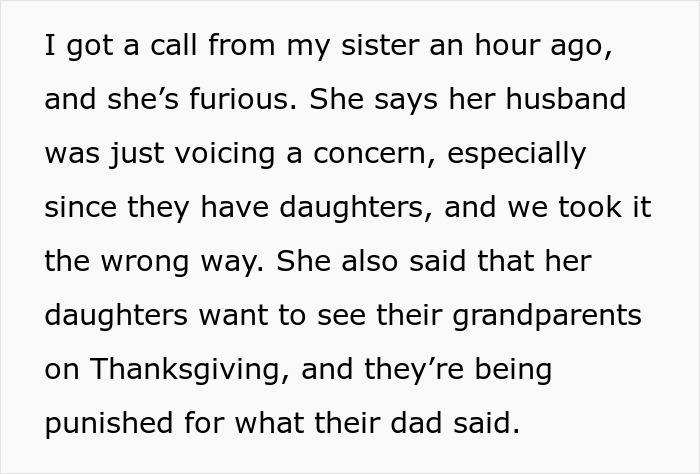
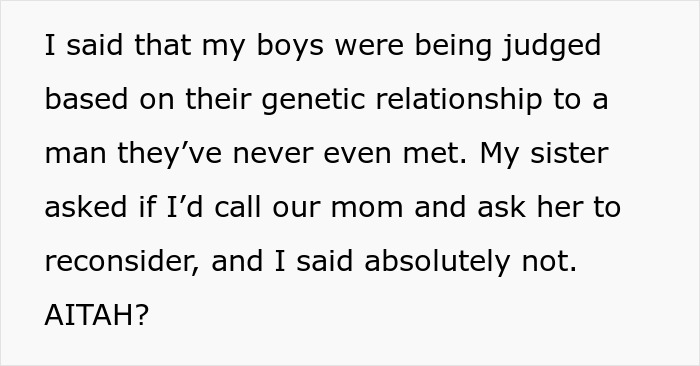
Image credits: Temporary_Trouble614
He went on to explain that he now plans to keep his children away from his brother-in-law for good

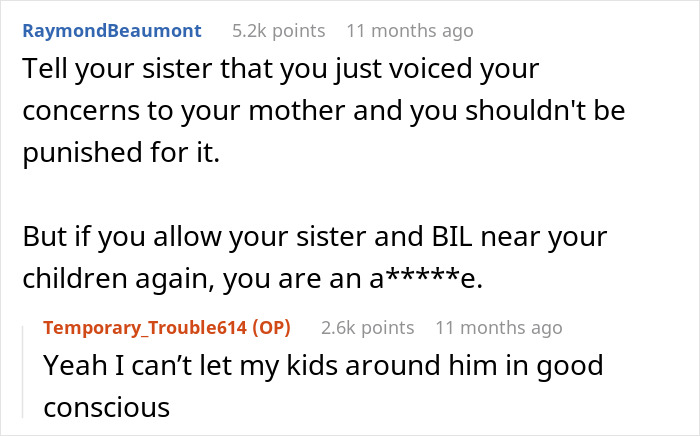
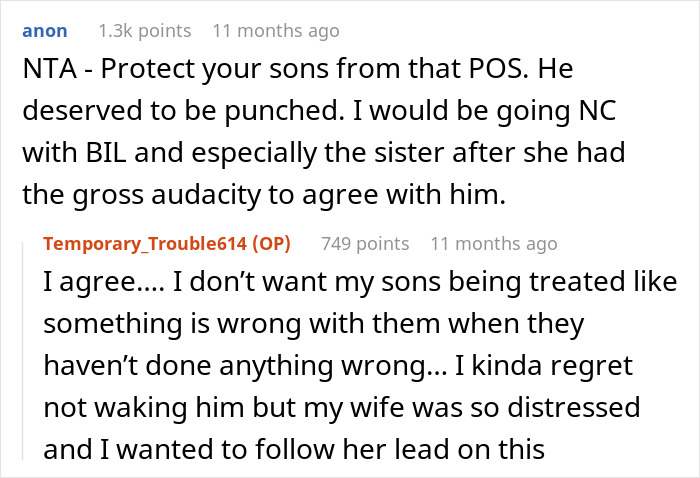
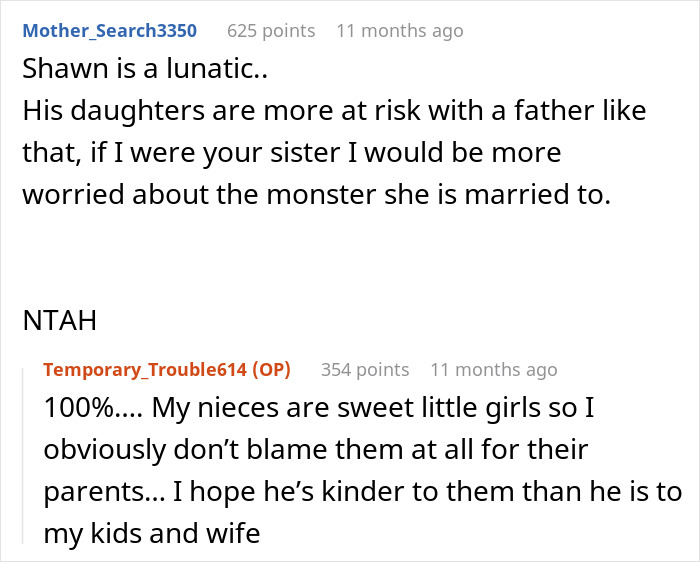
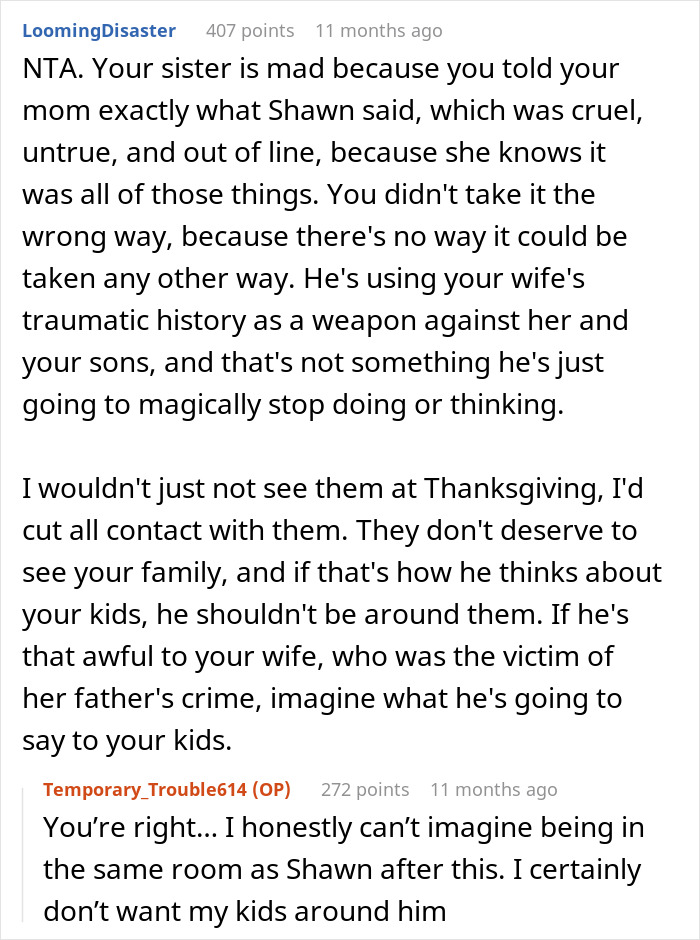
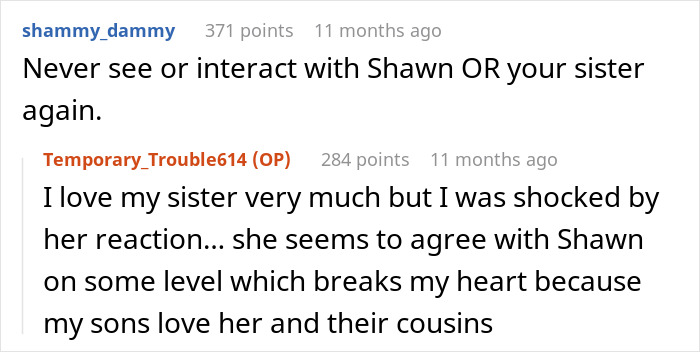
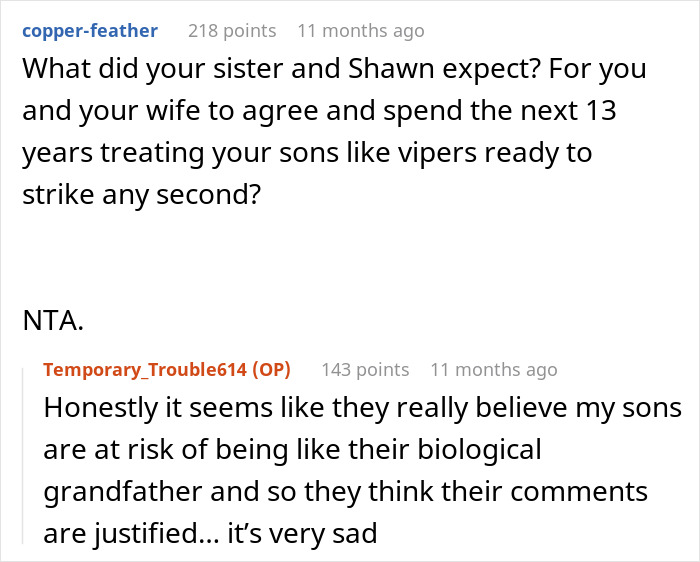
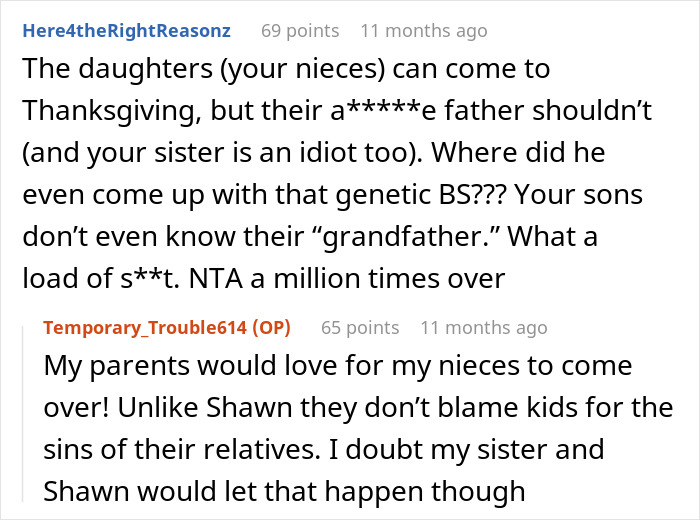
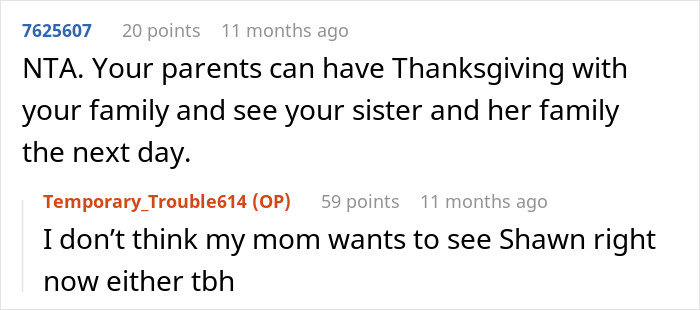

Children who have experienced trauma may struggle with anxiety and emotional challenges
Every child deserves a loving, safe, and nurturing childhood, one that allows them to grow, explore, and feel secure. They deserve homes where kindness and care shape their early years, not fear or neglect. Unfortunately, not every child gets that chance. Around the world, countless children still face challenges that rob them of their innocence.
According to new UNICEF estimates, nearly 400 million children under the age of five, or about six in ten worldwide, face harsh treatment or emotional neglect at home. Of these, roughly 330 million are subjected to physical punishment in some form. These numbers paint a heartbreaking picture of what many children endure behind closed doors. The effects of such treatment ripple through every stage of life.
“When children are exposed to harsh treatment at home, or when they are deprived of emotional care and affection from their loved ones, it can deeply impact their sense of self-worth and healthy development,” said UNICEF Executive Director Catherine Russell.
A review of 45 studies found that children who experienced severe personal violations or inappropriate behavior from adults displayed significantly more emotional and behavioral challenges than those who did not. The effects accounted for 15–45% of the differences seen across groups, a substantial figure highlighting just how damaging such experiences can be. Children who face these situations often struggle with trust, concentration, or forming healthy attachments.
Fear is one of the most common and lasting effects among children who have gone through traumatic experiences. It can surface in different ways: nightmares, anxiety, or an overwhelming need to stay “safe.” Children may avoid certain places or people that trigger memories of their distress. Recognizing this fear early is the first step in helping them recover.
Post-traumatic stress disorder, anxiety, depression, and behavioral challenges are also frequent outcomes of early trauma. Long-term, untreated stress can shape the way they process emotions and build relationships. Professional support, along with patience and compassion from caregivers, can make a world of difference in helping these children reclaim stability and confidence.
As family and friends, it’s crucial to provide a safe, nurturing, and supportive environment to help them heal
Research suggests that individuals who experience severe emotional or physical distress in childhood may face ongoing struggles in adolescence and adulthood. These can include difficulties with trust, intimacy, or regulating emotions. Some may develop heightened sensitivity to rejection, while others might suppress emotions altogether. The scars may not be visible, but they often shape a person’s choices, relationships, and sense of identity. However, healing is absolutely possible. With the right guidance, therapy, and supportive environments, many survivors go on to build strong, fulfilling lives full of hope and resilience.
That’s why it’s crucial for family, friends, and the wider community to be understanding and supportive of anyone healing from childhood trauma. Compassion should replace judgment, and listening should come before offering advice. For some, professional help, whether through therapy, counseling, or support groups, plays a key role in recovery. Healing isn’t linear; it takes patience and trust. Everyone has a role to play in creating safe spaces for survivors to feel heard and valued. With empathy, it’s possible to help others rediscover strength and self-worth.
Being insensitive or dismissive toward those who have lived through painful experiences can cause deep emotional harm. Words matter, especially to someone still trying to heal. Making assumptions or trivializing their pain only reinforces the isolation they already feel. Instead, offering genuine kindness and respect can help them feel seen and understood.
In this particular situation, it really seemed like the author’s brother-in-law crossed a serious line with his insensitive and hurtful comments. Making assumptions about someone’s children based on a relative’s past is not only unfair but deeply disrespectful, especially when it involves something so personal and painful. The author’s reaction to protect his wife and children was completely understandable, given how distressing the moment must have been. Family gatherings are meant to bring people together, not cause emotional harm. What do you think: was cutting ties the right move, or should he have handled it differently?
People online were outraged, calling the brother-in-law’s comments cruel, ignorant, and completely out of line


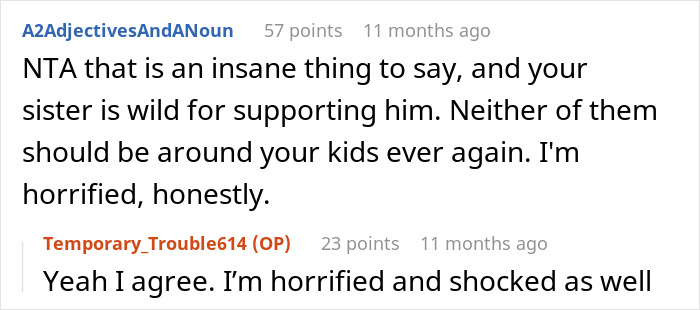
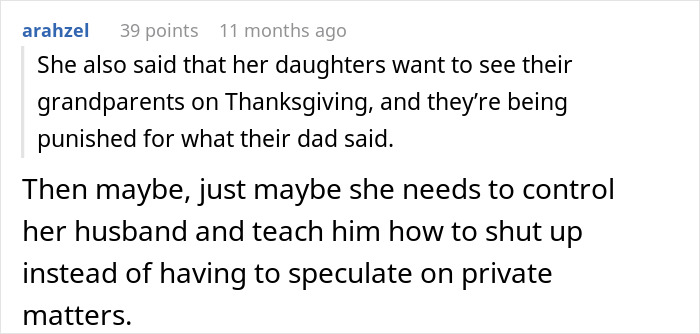
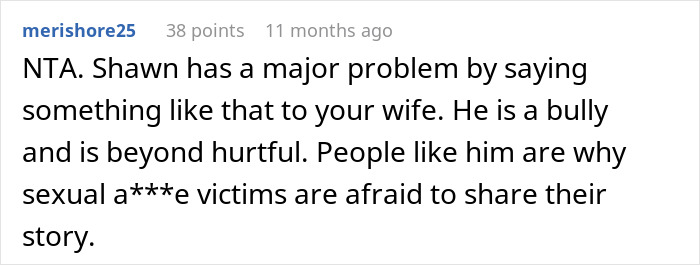
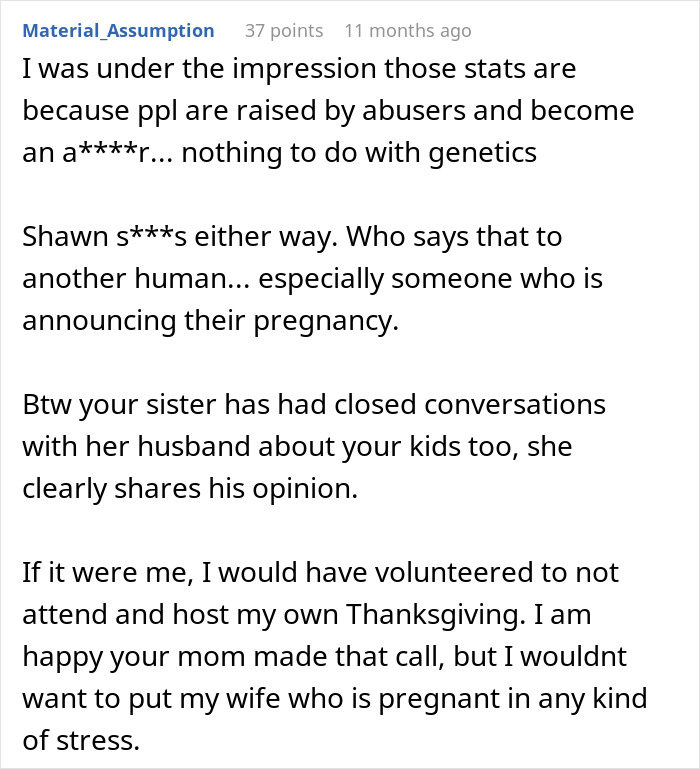
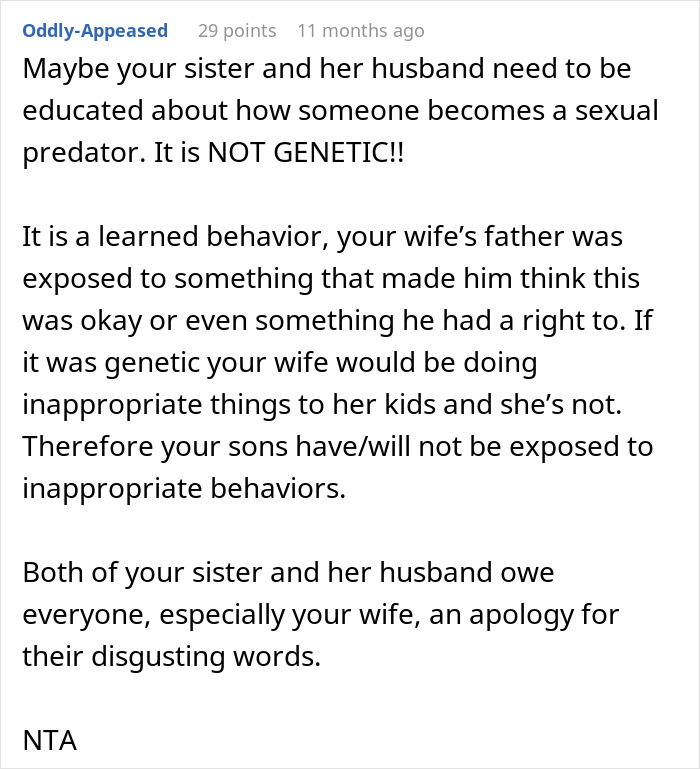
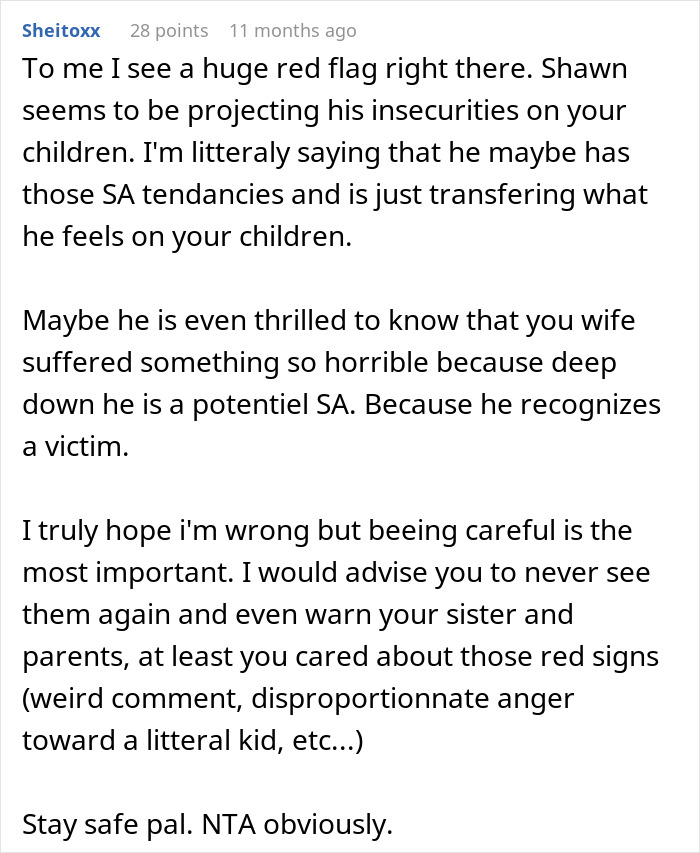

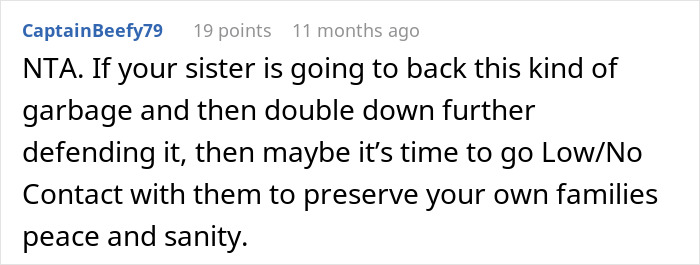
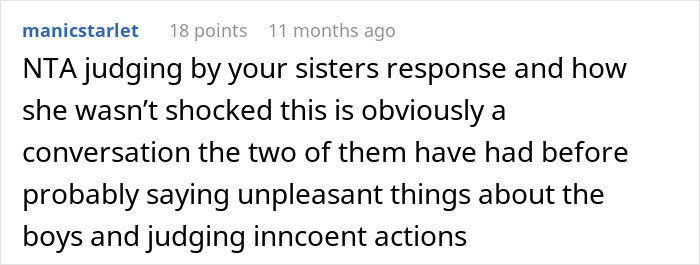

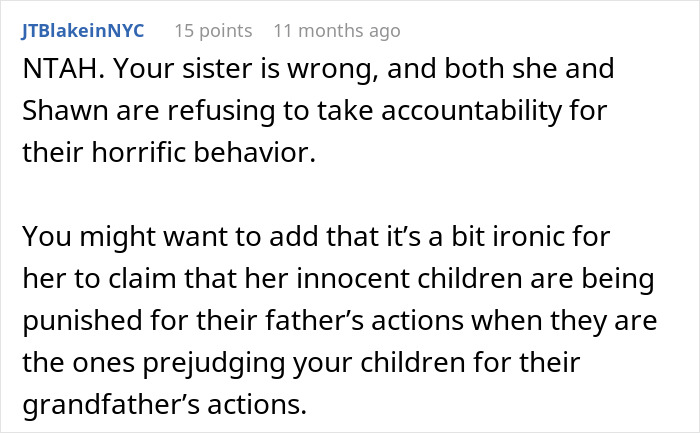
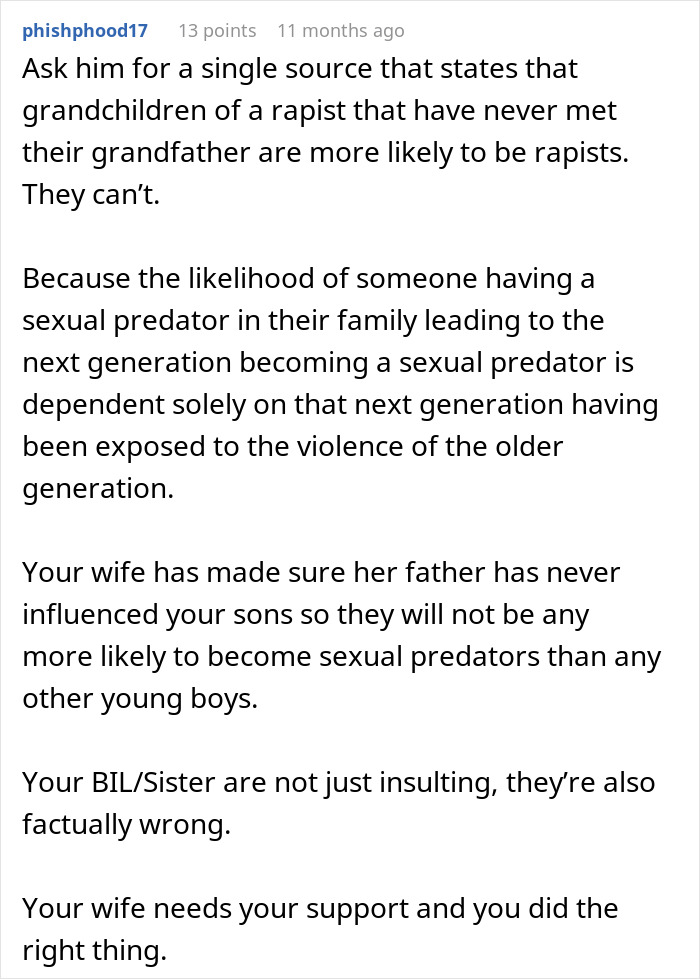
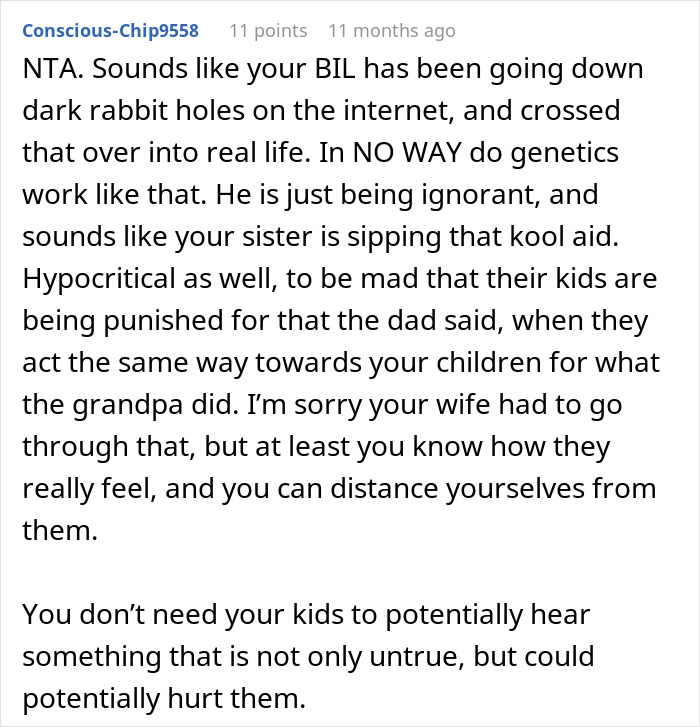


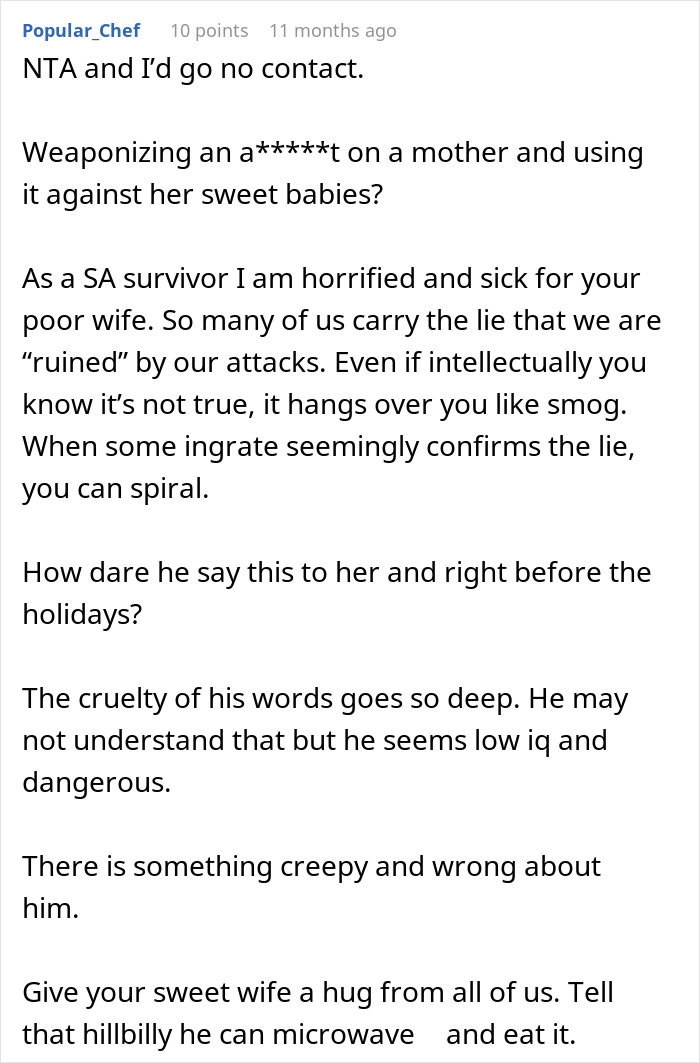
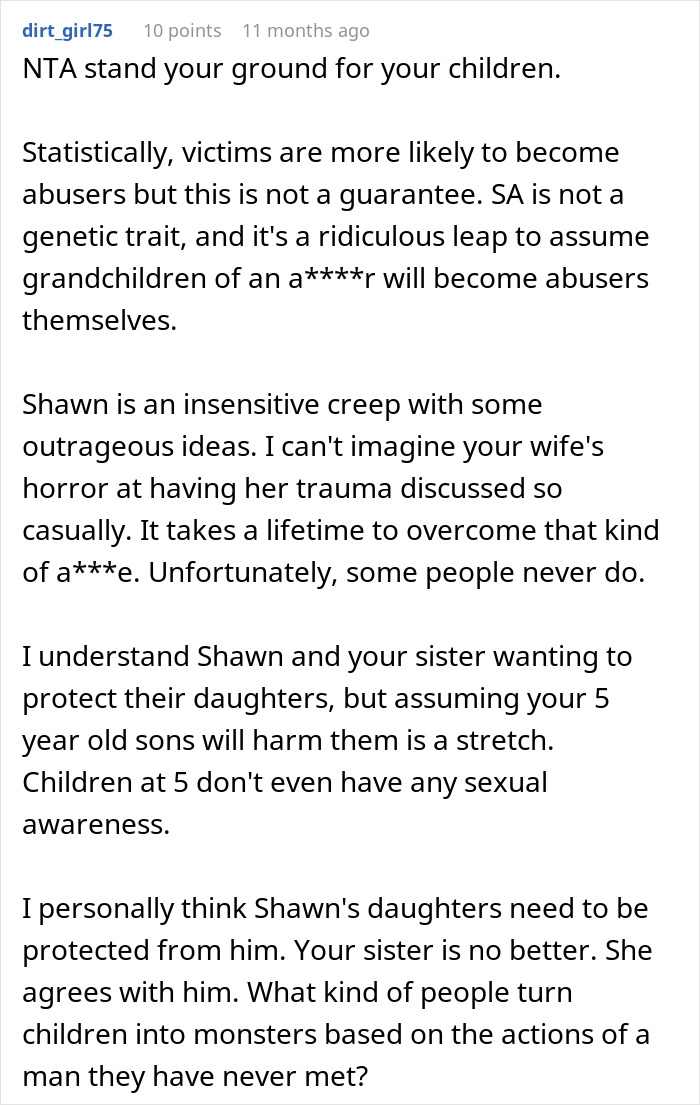
 Follow Us
Follow Us





